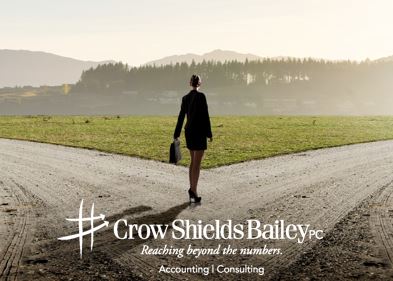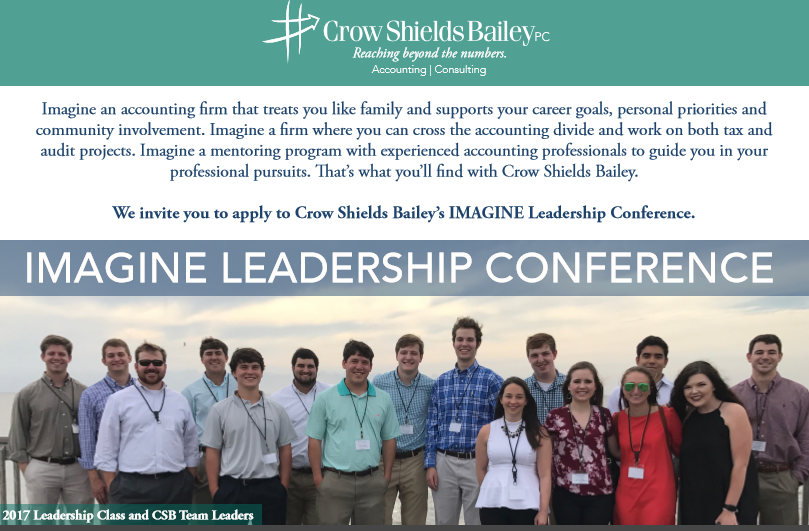
June 19, 2019
Caitlyn Grimme, CPA | Supervisor | Published by Crow Shields Bailey PC
One of the biggest decisions an accountant will face is the choice to specialize in tax or audit. While this decision may come easily to some, for others it can be the most difficult choice of their career.
Tax vs. Audit – What’s the Difference?
While both are accounting professions, the tax and audit paths can vary greatly. In the tax division, your day will focus on trying to reduce the client’s tax liability. Meanwhile, the purpose of an audit is to express an opinion as to whether the financial statements of a company are free from material misstatement. As such, auditors devise testing measures and scopes to evaluate the information provided by the client in order to express an opinion. Additionally, auditors may also work on other forms of attestation engagements such as reviews and compilations, which provide limited to no assurance regarding the financial statements.
Both tax and audit are rules and research based. Tax professionals must comply with rules set by the Internal Revenue Service and The U.S. Securities and Exchange Commission. Auditors must also follow generally accepted accounting principles (GAAP), generally accepted auditing standards (GAAS), additional SEC and PCAOB guidelines if required, as well as certain industry-specific guidance. However, while auditors rely on research and rules, they also rely heavily on auditor judgment.
Audit professionals must have strong interpersonal communication skills, as you are onsite communicating with clients on a daily basis. Tax professionals typically work in the firm office and might not communicate directly with a client for several months.
Both career paths are now heavily dependent on computer and software applications, so regardless of your choice, proficiency in technology is important.
There is conflicting information from online sources regarding differences in pay for auditors vs. tax professionals. Some sites state that lower level audit staff jobs are more plentiful than tax staff positions starting out and might offer higher initial pay. However, other sites argue that tax professionals have higher initial earning power. At the end of day, I would recommend choosing the path that you are more passionate about, as the earning potential doesn’t appear drastically different for either course (note this may vary by firm, industry specialization, etc.).
Are There Pros and Cons to Each Path?
Although not every firm is the same, here are a few standard pros and cons:
Audit:
Pros:
- Travel – audit professionals typically spend less time in the firm office than tax professionals. Whether the travel is local, regional, or national can depend on the specific accounting firm. For instance, audit professionals at large regional or national firms might spend a significant amount of time traveling while professionals at local firms might travel primarily to clients in their area. Independent of firm size, boutique firms specializing in a specific industry might travel more than others. If you like a varied day/routine with occasional to frequent travel, audit might be a good fit for you.
- Steady work flow – while the tax profession is driven by statutory deadlines, audit work is more consistent and constant throughout the year. There are still deadlines in the audit world, but these deadlines (which are usually set by governing bodies such as a board of directors or third parties such as bankers or bonding agencies) are usually spread more evenly throughout the year.
- Teamwork – audit engagements typically consist of an “audit team” with a partner, manager/in-charge, and staff member, at the least. This environment yields itself to mentorship and in-the-field hands-on learning for those new to the profession.
- Client interaction – with audit, a large portion of the engagement is performed “in the field” (i.e. at the client’s office). As a result, staff will be interacting with client personnel ranging from accounting clerks to the CEO on a daily basis.
Cons:
- Travel – while travel might appeal to some, it might be a significant deterrent to others. It is important when interviewing for an audit internship or staff position to question the firm’s expectation regarding amount of time spent traveling, as it can range by firm size or specialization as noted above.
- Professional skepticism – attestation engagements require independence from the client. This can be a problem for professionals who get too involved in order to “help” the client, as it can lead the auditor to making management decisions for the client and impairing independence and objectivity.
Tax:
Pros:
- Deadline-driven – while the time surrounding tax deadlines can typically be very busy for CPAs in the tax department, there is usually a lull between these storms that provides plenty of time for vacation, continuing education, professional development, etc.
- Independent work – while the audit department works on a team, tax professionals have more opportunity for independent work. While there is always someone available for questions if needed, if you prefer to work on projects on your own, then tax might be a better fit.
- Fast turn-around – while audits may drag out for weeks or months, tax returns are usually much smaller individual engagements which lead to quicker turnaround. If you are someone who likes to quickly cross projects off your list, this might be the path for you.
- Exposure – although you are not in the field with the client on a daily basis as in auditing, tax professionals receive more exposure to different clients throughout the year. For example, an auditor might work directly with 10-15 clients a year, while a tax professional might deal with 100.
Cons:
- Deadlines – while the lull provided after a deadline is nice, the weeks and months leading up to a deadline require overtime work by tax professionals, which dissuades many from joining the profession.
- Client exposure – since tax professionals work primarily in the office, they do not interact face-to-face with clients daily. This could be preferred if you tend to be more introverted, but extroverts might find this arrangement challenging.
I’m Still Undecided – What Can I Do?
If you are still unsure which path is a better fit, try out some of the following:
Apply for an internship – internships are a fantastic way to learn the basics of both disciplines. Most large firms will offer internship experience on a tax or audit basis which allows full immersion in either path. Smaller local firms may offer internship opportunities with exposure to both tax and audit in the same internship round (typically a “busy season” internship from January through April 15th).
Online forums – in the age of technology we live in, information is at the tips of our fingers, literally. There are several sites with forum posts or resources surrounding this subject. Check out the CPA exam forum on www.another71.com or the AICPA career guidance section, just to name a few.
Ultimately, the career you choose must be the best fit for you. What are pros for one person might be cons for another (ex. frequency of travel engagements). However, as long as you know yourself and what is most important to you, you will make the right decision. Feel free to contact us to set up a job shadowing appointment if you would like to get a glimpse at a normal day for tax and audit professionals.





